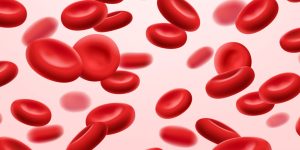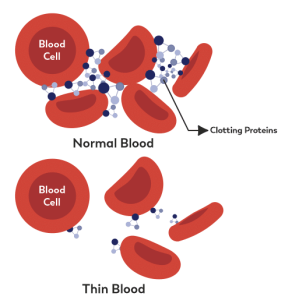
Introduction:
The interplay between alcohol consumption and blood clotting is a multifaceted realm with implications for health. This article takes a detailed journey through the effects of alcohol on platelets, the associated risks of blood clots, and the presence of alcohol use disorder.
How Does Alcohol Thin the Blood?
Delving into the specifics of alcohol’s influence on platelets reveals a nuanced picture:
- Platelet Activation and Deactivation: Research suggests that alcohol, when consumed in low to moderate amounts, can lead to decreased platelet activation. This is akin to the effects observed with conventional blood-thinning medications.
- Caution with Significant Alcohol Intake: Contrarily, the scenario changes with significant alcohol consumption. Platelet aggregation increases, posing a potential elevation in the risk of blood clots. It’s a delicate balance influenced by the quantity of alcohol consumed.

Comparative Table:
| Alcohol Consumption | Platelet Activation | Risk of Blood Clots |
|---|---|---|
| Low to Moderate | Decreased | Potential decrease |
| Significant Amounts | Increased | Potential increase |
Can Alcohol Cause Blood Clots?
A deeper exploration reveals the connection between daily, heavy alcohol consumption and platelet dynamics:
- Link to Cardiovascular Risks: Studies indicate that substantial alcohol intake is associated with increased platelet aggregation and reactivity.
- Broader Health Implications: High alcohol consumption is not just limited to blood clot risks. It has been linked to conditions such as high blood pressure, stroke, atrial fibrillation, and heart failure.
- Moderation Advised: The American Heart Association recommends moderation, defining one drink as a 12 oz beer with 5% alcohol, a 5 oz glass of wine, 8 oz malt liquor of 7% alcohol, or 1.5 oz of 80-proof liquor.

Alcohol Use Disorder (AUD):
Understanding the medical condition of Alcohol Use Disorder (AUD):
- Definition: AUD is characterized by an inability to control or stop alcohol consumption despite negative consequences on health, work, or relationships.
- Treatment Approaches: Healthcare professionals employ a combination of medications, behavioral therapies, and support groups to address AUD.
- Seeking Help: Individuals suspecting AUD are urged to consult their doctors or reach out to the National Institute on Alcohol Abuse and Alcoholism (NIAAA) for guidance on treatment and support.

Frequently Asked Questions (FAQs):
Diving into common queries surrounding alcohol and blood clotting:
- Does alcohol thin the blood before surgery?
- Research suggests alcohol may thin the blood, emphasizing its avoidance before surgery.
- Heavy alcohol use and AUD may heighten surgical complications and impact anesthesia requirements.
- Can people drink alcohol while taking blood thinners?
- Alcohol’s interaction with blood thinners can lead to adverse effects.
- Healthcare professionals should be consulted to determine the safety of alcohol consumption alongside medications.
- Can someone drink alcohol instead of taking a blood thinner?
- Despite potential blood-thinning effects, alcohol increases the risk of cardiovascular conditions.
- Consulting with a doctor is essential before considering alcohol as a substitute for prescribed blood thinners.
Summary:
In summary, the intricate relationship between alcohol and blood clotting reveals a nuanced dynamic. While low to moderate alcohol consumption may exhibit blood-thinning effects, significant intake can heighten the risk of blood clots. Prioritizing prescribed medications over alcohol and seeking guidance from healthcare professionals is imperative for a balanced approach to health.










